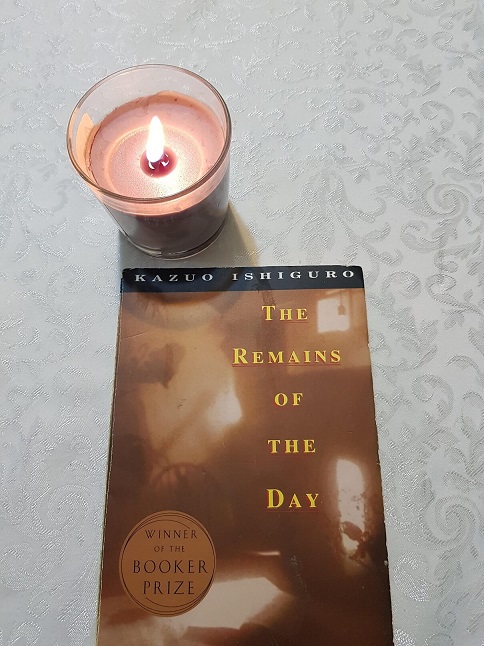
How to Best Serve Humanity in Ishiguro’s “The Remains of the Day”
Book Review: “The Remains of the Day” by Kazuo Ishiguro
I often have a feeling that I was born in the wrong era. Don’t get me wrong, I’m grateful for the comforts of our modern world, and perhaps would not replace them so easily, but the part that I refer to is living for something large, believing in something, working in a group towards something substantial, sacrificing something for the bigger good.
In the past, there are so many examples of this kind of being and thinking: Building a new country, moving to new lands to start fresh, creating an organization for equal rights. When I think about it, many of these initiatives came after extremely difficult times, such as war and conflict, and the new starts and struggles were definitely not easy. I’m not trying to idealize the past in any way. And of course, even today, there is so much to work for on the social front, many topics that need to be dealt with, and unfortunately we still have a lot of work globally to achieve equality and so much more.
What I do have a certain longing for is the value structure from the past. Where many people understood the need to put other things before themselves, where nobody ridiculed you for striving to “do the right thing”, the proper thing…
These thoughts and many more were swimming in my head while reading Kazuo Ishiguro’s “The Remains of the Day”. We follow Mr. Stevens, the experienced and devoted butler of Darlington Hall, on a road-trip across England’s countryside. Stevens, in his rigid and committed position did not have many opportunities for this type of travel, thus making this experience more significant for him. During this trip Stevens returns to many of his memories from the past, and the reader gets an intimate glimpse into the life of a butler in this kind of environment. Stevens has much pride in his position. He is a true professional and he takes his role seriously indeed.

This road-trip becomes more than reminiscence, a kind of life summary, if you may. At times I felt that Mr. Stevens was doing some kind of soul-searching self-examination. He admitted to certain occurrences from the past that perhaps he could have dealt with in a better way, things that he was proud of and things that he regrets. He did not plan for this to happen, yet perhaps the change of scenery, and stepping away from his everyday surroundings brought all this on. It might also have to do with the visit that he is planning towards the end of the trip, to Miss Kenton, who used to work with him for many years as housekeeper at Darlington Hall. Many of his regrets seem to be related to her, in some way or the other.
Mr. Stevens tries to define for himself what distinguishes a good butler from others, what makes a true professional butler. He speaks of dignity. This concept re-appears throughout the book.
“Indeed, the more one considers it, the more obvious it seems: association with a truly distinguished household is a prerequisite of ‘greatness’. A ‘great’ butler can only be, surely, one who can point to his years of service and say that he has applied his talents to serving a great gentleman – and through the latter, to serving humanity.” (pg. 117)
I found it touching, the extent to which Stevens is trying to describe his lordship’s strengths, good deeds and accomplishments, and thus find in these his true life meaning. If Lord Darlington has indeed done good in this world and served humanity well, then Mr. Stevens as his main butler has served him well and contributed in this way to the good of humanity too. Even though it is clear that Stevens admires his lordship and believes in him, in between the lines, throughout the book, the reader receives information and learns of certain occurrences that might crack this perfect character and bring in some doubts. Does this mean that Mr. Stevens did not serve the world well, as a result?
The relationship between Stevens and Miss Kenton is a curious one. Being English, at this time era, and in these positions, and with specific backgrounds and upbringing, most of the characters are so “proper”. Admitting to one’s true feelings does not come easily, if at all. Mr. Stevens hardly expresses emotion when his own father passes away, in the same house in which they are both serving, so how can we expect him to express emotion of any other kind? This is tragic and expresses once again the full sacrifice that Stevens has made in his life, in order to maintain his ultimate professional façade. Was this sacrifice worth it? It remains to the reader to decide.
The book is beautifully written, and I was fully immersed in
this period of time in England and in Stevens’ memories. Ishiguro has a true
gift, and I highly recommend this book. If you read it, I would be so happy to
hear your thoughts!






